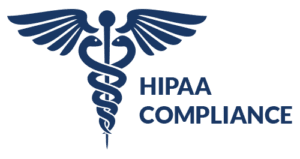
HIPAA Compliance and Medical Answering Services: What You Need to Know
The Health Insurance Portability and Accountability Act (HIPAA) sets national standards for protecting sensitive patient health information. Compliance with HIPAA regulations is crucial for healthcare providers, including medical answering services. In this blog post, we will discuss what HIPAA compliance means for medical answering services and how it impacts patients and healthcare providers.
What is HIPAA?
HIPAA was enacted in 1996 to protect the privacy and security of individuals’ health information. The act requires healthcare providers, including medical answering services, to protect patient health information and keep it confidential. HIPAA compliance is mandatory for healthcare providers, and noncompliance can result in fines and other penalties.
What is a Medical Answering Service?
A medical answering service is a third-party company that provides telephone answering services to healthcare providers. These services can include scheduling appointments, answering patient inquiries, and providing after-hours support. Medical answering services can help healthcare providers improve patient satisfaction and streamline their operations.

HIPAA Compliance for Medical Answering Services
Medical answering services that handle patient health information are considered business associates under HIPAA regulations. This means that they are required to comply with HIPAA regulations, just like healthcare providers. HIPAA compliance for medical answering services includes several requirements, such as:
- Security measures: Medical answering services must have appropriate security measures in place to protect patient health information. This includes physical, technical, and administrative safeguards to prevent unauthorized access to patient information.
- Training: Medical answering service staff must receive training on HIPAA regulations and how to handle patient health information properly.
- Business Associate Agreement (BAA): Medical answering services must sign a BAA with the healthcare provider they are working with. The BAA outlines the responsibilities of the medical answering service regarding HIPAA compliance.
- Breach notification: Medical answering services must notify the healthcare provider in the event of a data breach that involves patient health information.
Benefits of HIPAA-Compliant Medical Answering Services
HIPAA compliance for medical answering services benefits both patients and healthcare providers. Some of the benefits include:
- Protecting patient health information: HIPAA compliance ensures that patient health information is kept confidential and secure.
- Improving patient satisfaction: Medical answering services can help healthcare providers provide better customer service and improve patient satisfaction.
- Streamlining operations: Medical answering services can help healthcare providers streamline their operations and reduce administrative burdens.
- Avoiding penalties: HIPAA noncompliance can result in fines and other penalties. Using a HIPAA-compliant medical answering service can help healthcare providers avoid these penalties.

HIPAA compliance is crucial for medical answering services that handle patient health information. Healthcare providers must ensure that the medical answering service they are working with is HIPAA compliant to protect patient health information and avoid penalties. Choosing a HIPAA-compliant medical answering service can provide benefits for both patients and healthcare providers, including improved customer service, streamlined operations, and protection of patient health information.
The Cost of HIPAA-Compliant Answering Services
The cost of HIPAA-compliant answering services can vary depending on several factors, including the level of service needed, the size of the healthcare provider, and the geographic location. Some medical answering services charge a flat fee, while others charge per call or per minute. In this section, we will discuss the factors that can impact the cost of HIPAA-compliant answering services.
Level of Service
The level of service needed can impact the cost of HIPAA-compliant answering services. Basic services, such as answering phone calls and taking messages, may cost less than more advanced services, such as appointment scheduling and after-hours support. Healthcare providers should consider their needs when choosing a medical answering service to ensure they are only paying for the services they need.
Size of the Healthcare Provider
The size of the healthcare provider can impact the cost of HIPAA-compliant answering services. Larger healthcare providers may require more extensive services, which can increase the cost of medical answering services. However, some medical answering services offer discounts for larger healthcare providers, so it is important to shop around and compare pricing.
Geographic Location
The geographic location of the healthcare provider can also impact the cost of HIPAA-compliant answering services. Medical answering services in larger cities or regions with a higher cost of living may charge more for their services. Healthcare providers should consider their location when choosing a medical answering service and compare pricing from multiple providers.
Additional Fees
In addition to the base cost of HIPAA-compliant answering services, healthcare providers may incur additional fees, such as setup fees, per-call fees, or per-minute fees. It is important to ask medical answering services about any additional fees upfront to avoid surprises on the bill.

Average Cost of HIPAA-Compliant Answering Services
The average cost of HIPAA-compliant answering services can vary widely depending on the level of service needed, the size of the healthcare provider, and the geographic location. Basic services for a small healthcare provider may start at around $50 per month, while more advanced services for larger providers may cost upwards of $300 per month. For services that charge per call, you can generally expect to spend around $1 to $2 per call.
The cost of HIPAA-compliant answering services can vary depending on several factors, including the level of service needed, the size of the healthcare provider, the geographic location, and any additional fees. Healthcare providers should consider their needs and budget when choosing a medical answering service and compare pricing from multiple providers. While cost is an important factor, it should not be the only factor when choosing a medical answering service. HIPAA compliance, reputation, and level of service should also be considered when making a final decision.
The Legality of HIPAA-Compliant Answering Services
HIPAA compliance is mandatory for healthcare providers and their business associates, including medical answering services. Noncompliance with HIPAA regulations can result in fines and other penalties. Therefore, it is important for healthcare providers to ensure that the medical answering service they are working with is HIPAA compliant. Some key things to consider about HIPAA include:
- HIPAA regulations require medical answering services to have appropriate security measures in place to protect patient health information. This includes physical, technical, and administrative safeguards to prevent unauthorized access to patient information.
- Medical answering services must also sign a Business Associate Agreement (BAA) with the healthcare provider they are working with, outlining the responsibilities of each party regarding HIPAA compliance.
- In addition to HIPAA regulations, medical answering services must also comply with state and federal laws regarding the handling of patient health information. For example, the Health Information Technology for Economic and Clinical Health (HITECH) Act imposes additional requirements on healthcare providers and their business associates regarding the handling of patient health information.
Overall, HIPAA compliance is essential for medical answering services. Healthcare providers should make sure that the medical answering service they are working with is compliant with all applicable state and federal laws and regulations before entering into a contract. In addition to checking for legal compliance, healthcare providers should also ensure that their chosen medical answering service has implemented appropriate security measures to protect patient health information.
